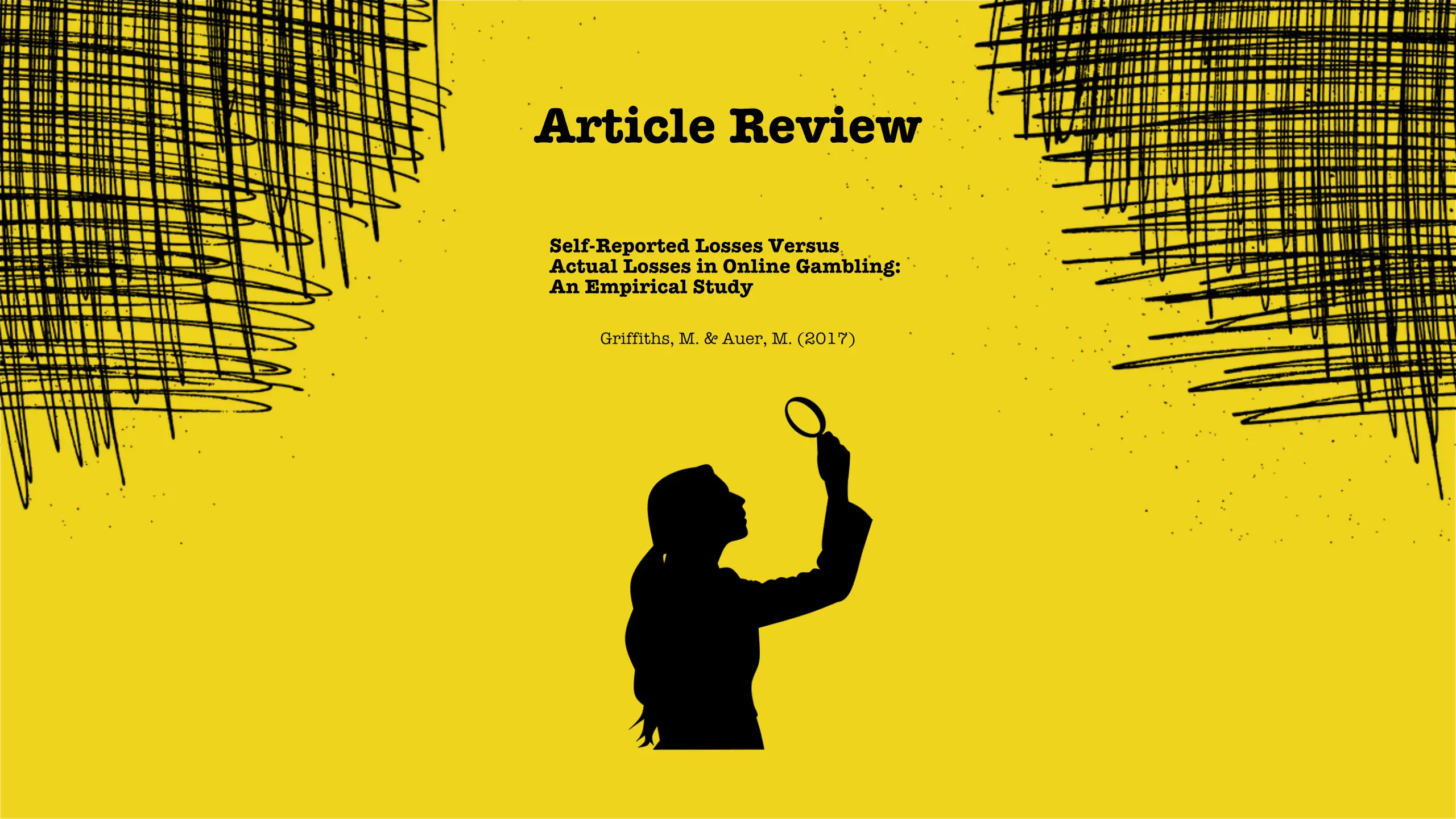People often overestimate their wins and underestimate their losses in gambling, creating a consistent financial bias that skews self-reported data. In Self-Reported Losses Versus Actual Losses in Online Gambling: An Empirical Study (Griffiths & Auer, 2017), the authors reveal how gamblers’ perceptions of expenditure and performance differ from their actual behavior, particularly in online sports betting contexts.
The study emphasizes that while gamblers can provide reasonably accurate estimates over short periods (such as one month), their accuracy significantly declines over longer time frames. The results raise important methodological questions for gambling research and practical concerns for responsible gambling interventions.
Key Ideas
1. Inaccuracy in self-reported gambling data
When asked, “How much do you spend on gambling?”, most players provide inaccurate answers.
Gamblers generally estimate their performance more accurately in the short term but struggle to track long-term results, especially when betting frequently or losing larger amounts.
The findings highlight a core limitation of self-report-based gambling research, as recall bias and selective memory distort players’ perception of their financial outcomes.
2. The illusion of control and expenditure tracking
Frequent players and those who lose higher sums tend to underestimate their losses, suggesting that greater involvement in gambling can paradoxically reduce self-awareness of spending.
This bias may stem from:
- Emotional detachment or denial of losses,
- Focus on “near wins” or selective memory of success,
- Overconfidence in betting skill or luck.
The result is a financial blind spot that prevents players from realizing the scale of their gambling behavior.
3. Demographic and behavioral segmentation
The study found no significant differences in accuracy between genders or age groups when estimating gambling expenditures. However, segmenting players by gambling type, frequency, and level of involvement remains essential for understanding behavioral risk.
Different forms of gambling (e.g., fast-paced live betting vs. long-term season wagers) are associated with different degrees of estimation bias, reflecting how game design and speed influence perception of control and outcome recall.
4. Implications for gambling research
The authors caution that studies relying solely on self-report data risk substantial inaccuracy when measuring gambling expenditure. Objective behavioral data, such as account-based tracking, is far more reliable.
Researchers and policymakers are encouraged to combine self-report measures with account-based analytics to validate findings and better identify problem gambling patterns.
5. Study limitations
The sample for this research was drawn from users of a gambling operator’s website, which may have overrepresented frequent or heavy gamblers. This could mean the results skew toward higher-risk individuals, limiting the generalizability of findings to the broader gambling population.
Selected Citations
- “Gambling is one of the few consumptive (and potentially addictive) behaviors that can be objectively tracked.”
- “Players systematically underestimate their losses or overestimate their wins.”
- “Caution is warranted when using self-report data relating to the amount of money spent gambling in any studies that are totally reliant on self-report data.”
Academic Reference
Griffiths, M., & Auer, M. (2017). Self-Reported Losses Versus Actual Losses in Online Gambling: An Empirical Study. Journal of Gambling Studies, 33.
